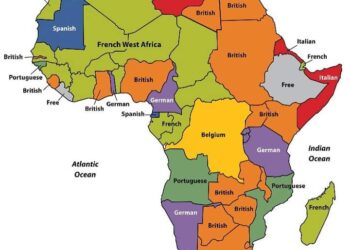Participants at a two-day women and girls summit in Abuja on Tuesday solicited support for education of young girls, ENE OSANG writes.
Nigerians from across globe has supported the call for the girl-child education as well as economic empowerment, security and healthcare.
The call was made during the Women and Girls Summit 2014 where women participants made their various submissions on the theme: “Reinforcing the agenda for girl-child education.”
They stressed the need to support the Nigerian girl-child in all ramifications, stressing that urgent steps needed to be taken by government and stakeholders to address all issues affecting the girl-child,
especially in the area of education, face of current national challenges.
This, according to them, was the only way to enable them play their role in nation-building.
Dr, Mojisola Odeku, a public health physician, suggested that the laws protecting the girl-child should be reviewed and updated, and the girl be enlightened to enable her speak up on her rights.
Dr (Mrs) Grace Ongile, UN Women representative to Nigeria and ECOWAS,
urged government to partner with communities as a means of tackling security challenges as they affect the girl-child.
On her part, Dr Mrs Chizoba Wonodi, a US-based epidemiologist, underscored the health challenges faced by the Nigerian, saying that many die of preventable diseases for lack of vaccination.
“Vaccination is required at different stages of the girl-child’s life. Before the child is one year old, she should have received seven different types of vaccines.
“Every year, about 800,000 Nigerian children die of preventable diseases such as malaria, measles, tetanus, among others, before their fifth birthday,’’ she said.
A woman entrepreneur, Dr Mrs, Titilayo Akinlade, in her submission, urged Nigerian women to imbibe the spirit of creativity and entrepreneurship and impart same on the girl-child to empower them.
“Every woman should be creative and imbibe the spirit of entrepreneurship so as to impart it on the girl-child at the early stage of their development and empower them economically,’’ she said.
Convener of the summit and Director General of National Centre for Women Development (NCWD), Onyeka Onwenu, stated that education is a vital tool for empowerment, adding that it allows for meaningful contributions in the society.
Owenu said the education of young girls is both an intrinsic right and and a critical means for reaching other developmental goals.
“Girl child education is essential for the achievement of quality learning relevant to the 21st century living. The girl child consistently faces exclusion from the inequalities within the educational systems over the course of her life.
According to the DG, there is need to reduce the disparities through deliberate policies and intervention, aimed at gender equality and empowerment.
She said “this summit will seek to identify banes and challenges in the process of girl child education in Nigeria. It will also engage key stakeholders of girl child education in Nigeria to discuss and evolve effective strategies on how to curb situations that threatens the well being and ultimate success in Nigeria.
“The summit also seeks to demonstrate government’s commitment towards the eradication of threats to the educational development of every girl child in Nigeria, and identify barriers and bottlenecks in the process of girl child education,” she said.
“The girl child is the future mother of a future generation; the mother of the future nation builders, if you may. The question beckons, what kind of mothers do we want to have in the foreseeable future? If the quality of motherhood is key to the development of society and every mother was once a girl child, it is then critical to ensure that the girl girl child is exposed to a quality education process that will produce a quality woman, mother and future leader,” she stressed.
She regretted that Nigeria still lag behind in attaining the high standard on girl child education especially at the basic school levels.
“Nigeria is still amongst the nations facing many challenges in reaching set targets for girl child education as well as bridging the gender gap in primary and secondary education. Yet education plays a particularly important role as a foundation for girls development towards adult life.
“Ensuring gender equality requires adapting equally to the needs and interests of girls and boys. International human rights lays down a three-fold set of criteria whereby girls should have equal right to education, equal right in education and their equal rights promoted and protected through education,” she said.



